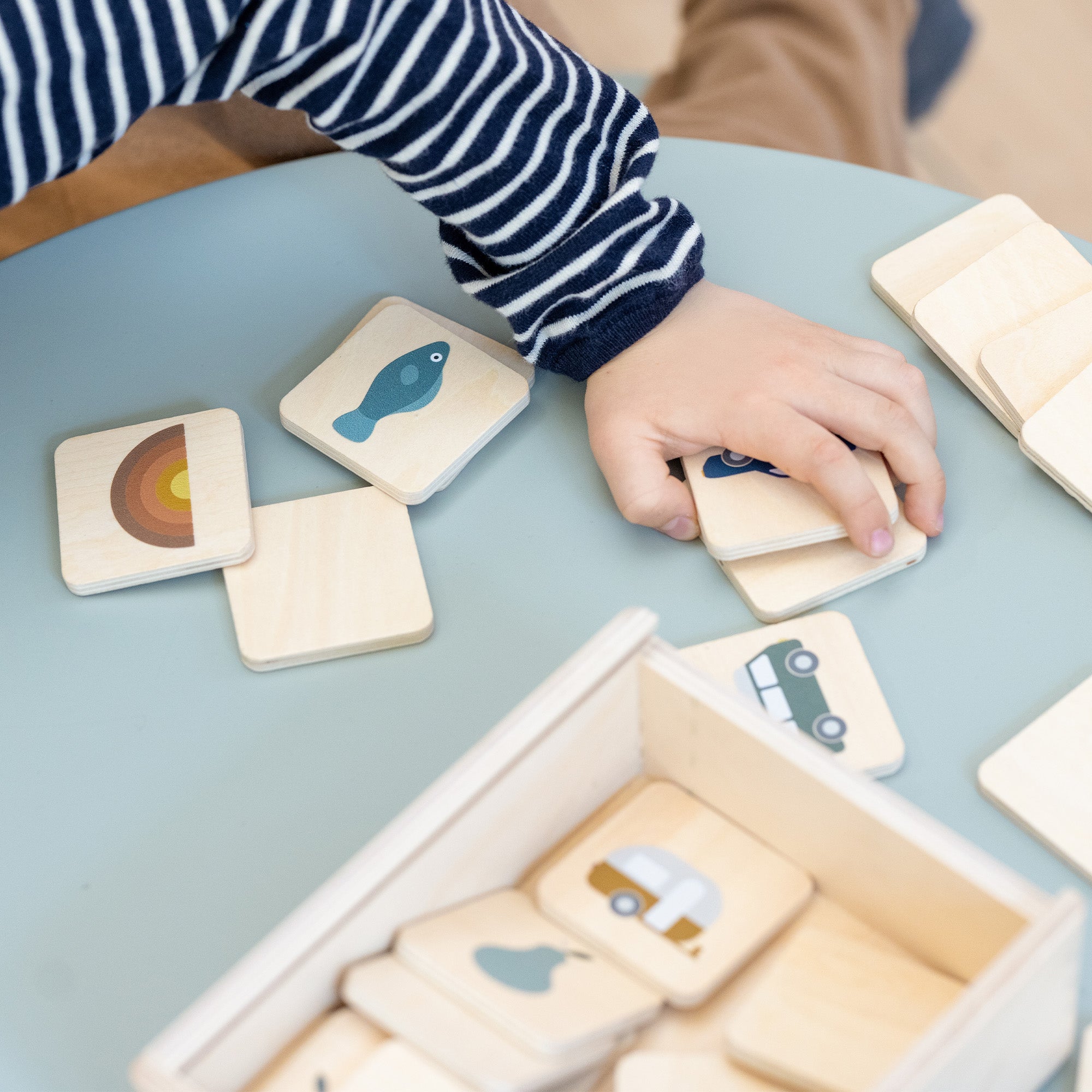Memory games and picture lotto are great learning toys. As the names indicate, these games sharpen your child’s memory and visual perception. They also teach them about winning and losing, and what it means to abide by the rules – and when to follow one’s own instincts. So, get out the board games and gather around the table – who’s ready to play?
Highlights:
- Memory games and picture lotto are great learning toys because they help:
- Strengthen your child’s memory, matching skills, and attention to detail.
- Teach your child to deal with big emotions, like the disappointment over losing.
- Teach your child about rules in a playful, casual setting.
- Teach your child to reason, to spot logic patterns, and to trust their gut instincts.
Sharpens Memory & Attention to Detail
Memory games and picture lotto test your child’s ability to first recognise icons, shapes, and colours, then memorise their positions, and finally match the cards in pairs. The more cards you play with the more you challenge your child’s memory. And when the individual cards have icons that resemble each other you train your little one’s eye for details.
Teaches Emotional Control
Sometimes you win a game and sometimes you lose a game. According to family advisor, Lola Jensen, we should be teaching this valuable lesson to our children from an early age.
“If you let your child win every time you play a game, your child might never learn how to handle failure. Show your child it’s okay to be sad and disappointed when they lose, and tell them they will get another chance of winning next time they play. This way, your little one learns to control their emotions and this ability will be useful, especially when they later in life start to compete with other children.”
A Great Way to Learn about Rules
Game playing is a great way for children to learn about rules in a playful, casual setting. Expert in children’s play, Joern Martin Steenhold, explains:
“With every game there’s a set of rules, and each player must follow the rules in order for the game to be successful. Rules such as waiting one’s turn, telling the truth about which cards you hold, or moving your pieces in the right direction all help to introduce children to the concept of rules, but in a fun and informal way. Just make sure the game you’re playing is appropriate for your child’s age, or else the rules might be too hard to comprehend for your little one.”
Teaches a Bit of Courage Too
Even simple games like memory games and picture lotto ask your child to make decisions on their own. “Should I choose this card or this card?” In the process, your child learns to reason, to spot logic patterns, and to trust their gut feelings. Perhaps the next time you play, your little one is ready to take on an even bigger game challenge?
Have fun playing!

